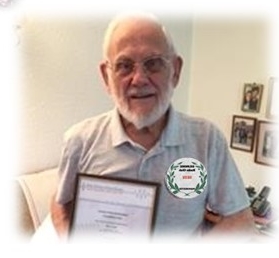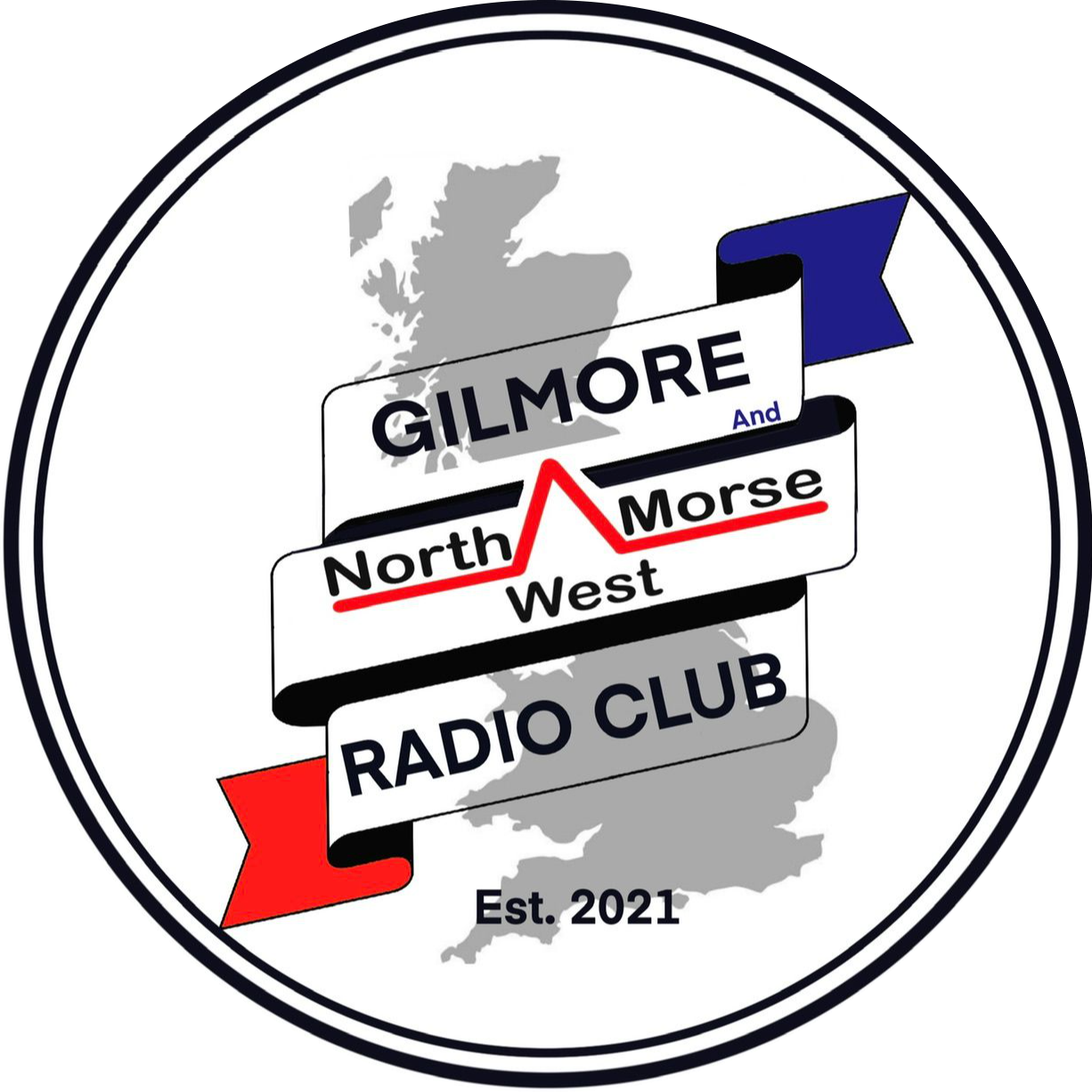
I passed my foundation licence at Stockport Radio Society on September 4, 2017 at the young age of 89. I was previously a telegraphist with the RNV(W)R Royal Naval Volunteer (Wireless) Reserve for 10 years from 1949 to 1959, then serving the community as a Church of England Vicar until I retired in 1993.
Due to ill-health I was unable to take my examination at the club, and with the help of ex members of SRS, Nigel 2E0CKA, Alan G0ROW and John M0JFM (now SK), they contacted the RSGB for approval, and once approved, the previous Foundation Course Lead Tutor, Phil M0XYA, assisted me with the training and practical’s. On the day of the examination, our invigilators Alan G0ROW and John M0JFM came to my home to do my exam under strict examination conditions.
I now have both VHF and HF transceivers and antennas up in my garden. I also would like to thank Nigel 2E0CKA for becoming a good friend and assisting with my kit and antennas, and to the course team for their help Phil M0XYA, Alan G0ROW and John M0JFM, for their support both whilst training and after.
I try to join in the nets when I can, and am now a proud member of Gilmore Radio Club.
A bit about my time as a telegraphist with the RNV(W) R.
In those days it was Mike Fox Mike 74 not foxtrot. Firstly, a little bit about myself, my family and our Naval background. My cousin John Edward Collinson aged 16 was a boy seaman, he ŵas lost at sea serving onboard HMS Courageous which was torpedoed in 1940. My Uncle, Norman Worthington served as a telegraphist in Bermuda controlling Atlantic convoys. My cousin Jack Rushton was a pilot in the Fleet Air Arm, badly wounded, but survived and continued to serve until 1945. My brother Jack Worthington Cook was a Ldg Telegraphist (S), he was a master with the key and specialised in German and Japanese morse. He served on HMS Lagan on Atlantic Convoy duty, she was torpedoed, he survived and continued service on Arctic and Mediterranean convoys, he, too, served with the RNV(W)R from 1948 to 1952 and was a morse tutor at our branch in Stretford Manchester. He taught me morse from scratch.
I joined him, in the RNV(W)R in 1950. My brother emigrated to Tasmania and worked for the Government Radio Telecommunications Network. He never mentioned what he did and I never asked him, I missed him so much as did the RNV(W)R branch at Stretford.
I shall be 94 in a few weeks time, I joined the Royal Navy in 1946, I always wanted to be Telegraphist but the Navy had other ideas. They trained me to be a Naval Air Mechanic Engines instead. I served in many Naval establishments including HMS Simbang, part of the British Pacific Fleet based at Singapore, and served also on HMS Theseus, light fleet carrier and part of the American 6th fleet under the command of Admiral Nimitz.
My time in the RNV(W)R was from 1950 until its disbandment in 1957, a very sad time indeed. I loved my time with the wireless reserve. We were required to serve in periods of five years. I signed for two periods but only managed to serve seven years when the wireless reserve was closed down. We had to attend two nights per week for lectures on all aspects of radio communication, listening to the Admiralty daily broadcast on paper punch tape – wonderful way to improve one’s morse being able to slow it down or speed it up.
We were required to use our holiday of two weeks and choose to go on a communications course at either HMS Mercury or the communications school at St Budeaux Plymouth or to join any ship that was available and join the crew and there were plenty in those days. We were classed as Ships Company therefore we were allowed our tot of rum and duty free tobacco.
I always opted for a course, one was examined at the end and results forwarded to our branch at Stretford. There was one occasion when my brother and I were on duty listening on the distress frequency, we picked up a Mayday call from a fishing trawler in danger of sinking. She had a crew of six and was off Chicken Rock, just south of the Isle of Man. We notified our control, Preston and gave them her position, they in turn notified Douglas RNLI, the crew were saved but the boat was lost, all very exciting, so pleased everything went so well and the lads were saved.
The highlight of my time was when we sat the exam for our licence and having passed received all our radio equipment and the Admiralty gave us our callsign. We were issued with uniforms and the cap ribbon simply said RNV(W)R.
Good Days which I miss very much
